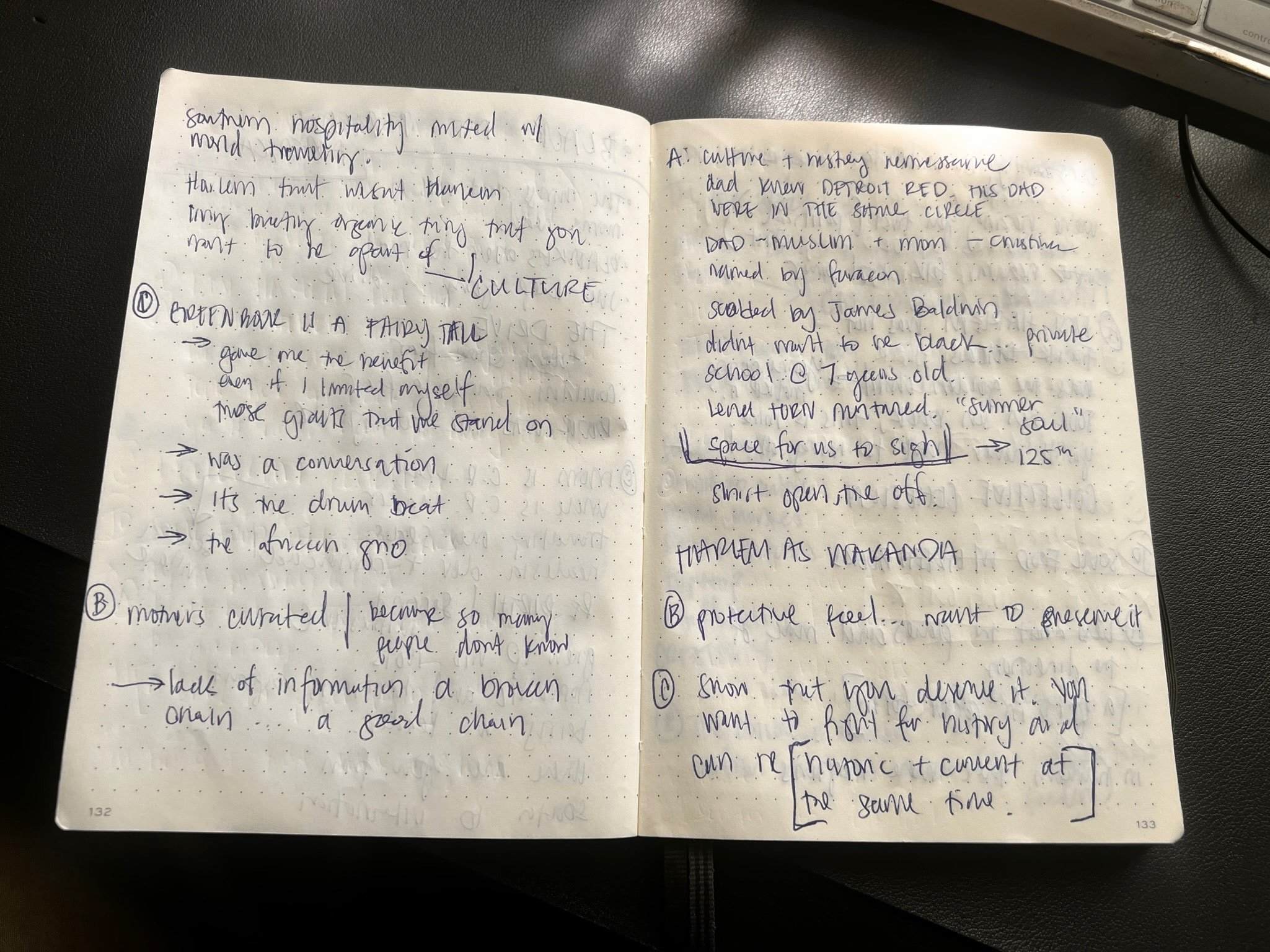

Today in Black History, April 4, 1968 Martin Luther King Jr. was assassinated.
Dr. Martin Luther King Jr. was one of the most influential figures in American history. As the face of the civil rights movement, his leadership and commitment to nonviolent protest reshaped the national dialogue around race, equality, and justice. His assassination on April 4, 1968, in Memphis, Tennessee, shocked the nation and the world.
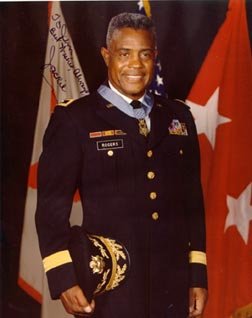
Major General Charles C. Rogers: A Legacy of Valor and Leadership
Major General Rogers’ life and career exemplified the highest values of the United States military—honor, courage, and selfless service. His battlefield heroism, exemplary leadership, and post-military contributions have left an indelible mark on the United States Armed Forces and American history. As a soldier, leader, and mentor, his story continues to inspire future generations to serve with distinction and uphold the values he so passionately defended.

Today In Black History: March 2nd, 1962. Wilt Chamberlain scores 100 points.
Wilt Chamberlain’s legendary 100-point game, a remarkable feat in NBA history, occurred on March 2, 1962—a date that holds significant importance as it marks 63 years since this extraordinary event. On that fateful day, Chamberlain, a formidable player for the Philadelphia Warriors, took on the New York Knicks at Hershey Sports Arena in Hershey, Pennsylvania. The Warriors emerged victorious with a score of 169-147, but the true significance of the game lies in Chamberlain’s individual accomplishment.
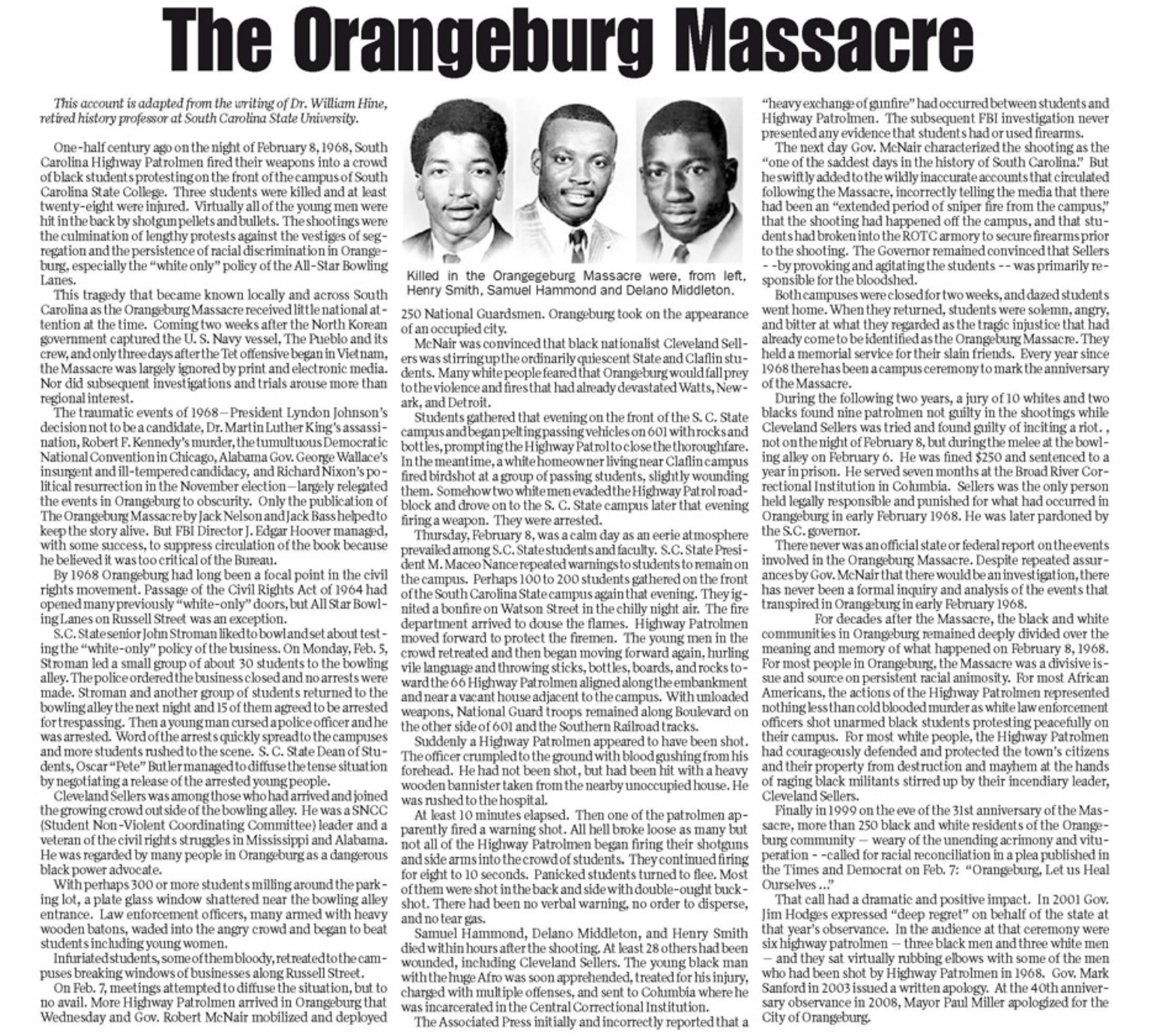
Today in Black History: February 8th 1968, The Orangeburg Massacre.
The Orangeburg Massacre occurred on February 8, 1968, at South Carolina State University in Orangeburg, South Carolina, culminating a series of protests led by students from South Carolina State College and Claflin University against the racial segregation practices at the local All-Star Bowling Lane. Over several days, these students sought to desegregate the facility as part of broader civil rights activism.
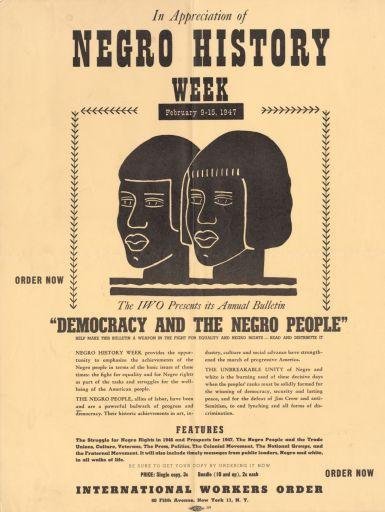
Why do we have a Black History Month?
Black History Month, observed annually in February across the United States and Canada, traces its origins to "Negro History Week," initiated by historian Carter G. Woodson in 1926.
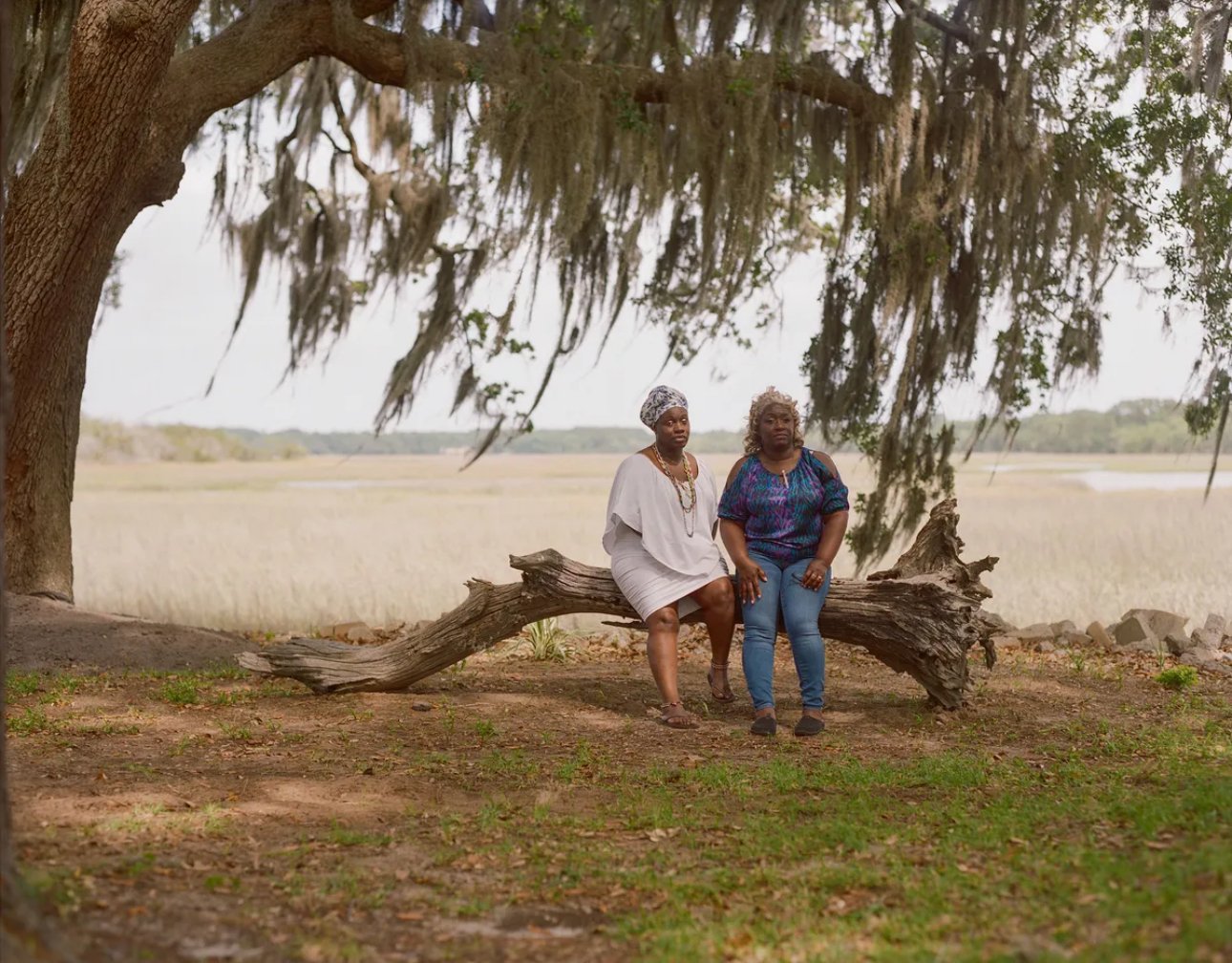
Heirs’ Property: An Unraveling Thread in the Fabric of Black Wealth and Community
While it is a concept rooted in family heritage and shared legacy, heirs' property has become a double-edged sword for the Black community in the United States, particularly in the rural South. This type of ownership has not only shaped the cultural and economic landscapes of these communities but also contributed significantly to the erosion of Black wealth and the loss of inheritance over the decades.
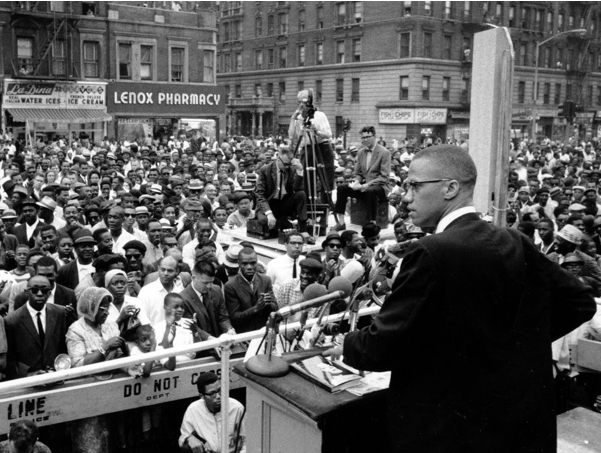
The Johnson Hinton incident brought Malcolm X to the attention of white America.
In April 1957, Johnson Hinton came upon a couple of police officers who were clubbing a man named Reese V. Poe on the corner of 125th Street and 7th Avenue in Harlem. Hinton called out to the officers: “You’re not in Alabama – this is New York! ” The police then turned their nightsticks on Hinton clubbing him and cracking his skull. The officers subsequently handcuffed Hinton and took him to the 28th precinct stationhouse. By the time the evening arrived, over 2,000 people were surrounding the precinct demanding that Hinton be provided with adequate medical attention.
Johnson X Hinton, it turns out, was a black Muslim who belonged to Mosque Number Seven, the largest mosque in the country – led by a 31-year-old preacher named Malcolm X.
